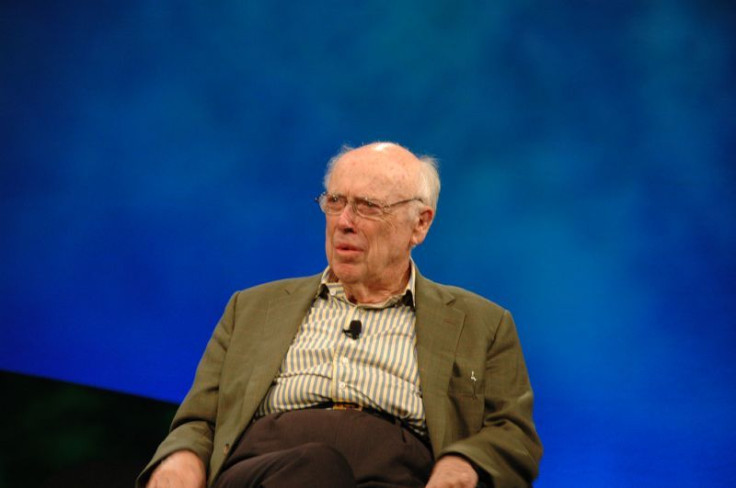James Watson, Co-Discoverer Of DNA, Becomes First Nobel Laureate To Auction Off His Prize Medal

In 1962, James Watson, Francis Crick and Maurice Wilkins were awarded the Nobel Prize in medicine for their discovery of the double-helix structure of DNA. This discovery was considered one of the most important advancements in science of the 20th century, yet Watson, who’s now 86 years old, is auctioning off his prize medal.
Why? The infamous scientist, notorious for a multitude of racist and sexist comments over the decades, as well as an arrogant attitude, appears to be auctioning off the medal to scorn the scientific community who had in turn scorned him for his outlandish behavior and racist comments in 2007. He claims, however, that he simply doesn’t have enough income from academia, and needs extra money. He will also donate the proceeds from the auction to science and charities.
Watson is the first living Nobel laureate to sell his medal, which will be auctioned by Christie’s New York for upwards of $3.5 million. Other items included in the auction are Watson’s handwritten notes for his acceptance speech at the Nobel Prize ceremony in 1962 in Stockholm. He will also be auctioning a draft of the lecture he gave the day after the ceremony for up to $200,000.
In an article he wrote in The Financial Times, Watson states that his fall from grace in the scientific community has rendered him an “unperson.” “No one really wants to admit I exist,” he wrote. He hopes that by auctioning off his Nobel prize, it might be a way for him to “re-enter public life.” He also insists that he’s “not a racist in a conventional way,” whatever that means.
In 2007, he reportedly said that he felt “inherently gloomy about the prospect of Africa” because “all our social policies are based on the fact that their intelligence is the same as ours, whereas all the testing says not really.” These remarks forced him to retire from his position as chancellor of Cold Spring Harbor Laboratory, which he had led for years. But perhaps his worst demeanor was refusing to credit Rosalind Franklin, a female collaborator on the DNA sequence, for providing Watson and his two male colleagues critical research about the DNA structure.
The Nobel was awarded to Watson, Crick, and Maurice Wilkins “for their discoveries concerning the molecular structure of nucleic acids and its significance for information transfer in living material.”
Watson notes in The Financial Times: “I’ve had a unique life that’s allowed me to do things. I was set back. It was stupid on my part. All you can do is nothing, except hope that people actually know what you are.”
Published by Medicaldaily.com



























